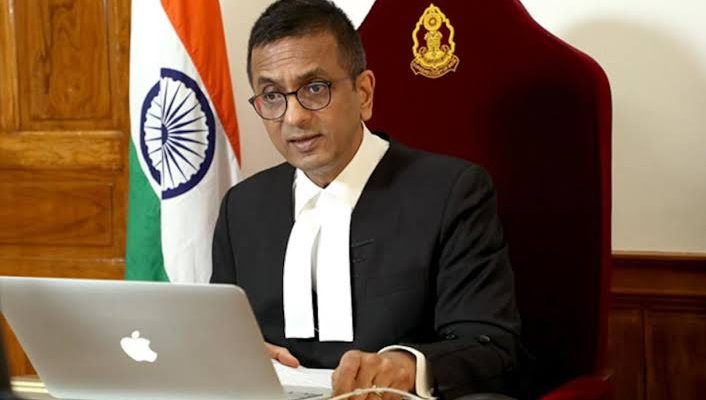From Our Bureau
NEW DELHI: Chief Justice of India DY Chandrachud on Tuesday held that the constitution of Jammu and Kashmir was not at par or superior to the Indian Constitution because the way it operates was mentioned in the Indian constitution and not the other one.
He was presiding over a 5-judge Constitution Bench hearing a challenge to Article 370 and the Reorganisation of the J&K Act. Besides the CJI, other judges on the bench are Justices S K Kul, Sanjay Khanna, Surya Kant and B R Gavai.
Senior advocate Gopal Subramanium submitted on the 16th day of hearing before the 5-judge Constitution Bench that the constitution is also a parchment of pride and it defines them and it defines their persona. They are not saying anything else but only saying that there cannot be the evaporation of the Constitution unless it is done in an manner in accordance with law.
He said the instrument of accession did not lead to the complete transfer of sovereignty. The instrument of accession finds a place in 370 and even the constituent assembly finds a place in 370. It was stated that there is no mention of J&K Constitution in the Indian constitution but my point is it is there. Look at the word.. constitution of the state and it is no other constitution but the constitution of J&K. Then there was the State Reorganisation Act.
Subramanium argued that the President is a part of the parliament. Parliament by the very definition includes the president and the two houses and under our Constitution the president can never act without aid and advice. This claim of untramelled power with the president under 370(1) is flawed.
Senior advocate Kapil Sibal asked what is the constitutional basis to deny the residents of jammu and kashmir the right to a State? India is after all a union of states…..It should not be such as to acts are done in a way without consulting the public,without reference to legislature.. the public and we should not forget that people are central to the constitution of India.
“Now I come to the argument of impossibility which is not part of any counter, any submission, any affidavit etc but yet we have to deal with it. If there is a constitutional obligation to be performed and it has to be performed then in furtherance to that obligation the principle of impossibility of performing another obligation comes into place,” Sibal said.
“Bilateralism is at the heart of Article 370. There is no silence in constitution regarding this. There had to be recommendation by the council of ministers to the president and not the parliament. No dissolution of assembly can take place without aid and advice of council of ministers and thus dissolution of assembly on November 21 was void and you cannot interpret powers of Governor from other states of India. So if this action is bad the CO 272, 273 has to be struck down.”




